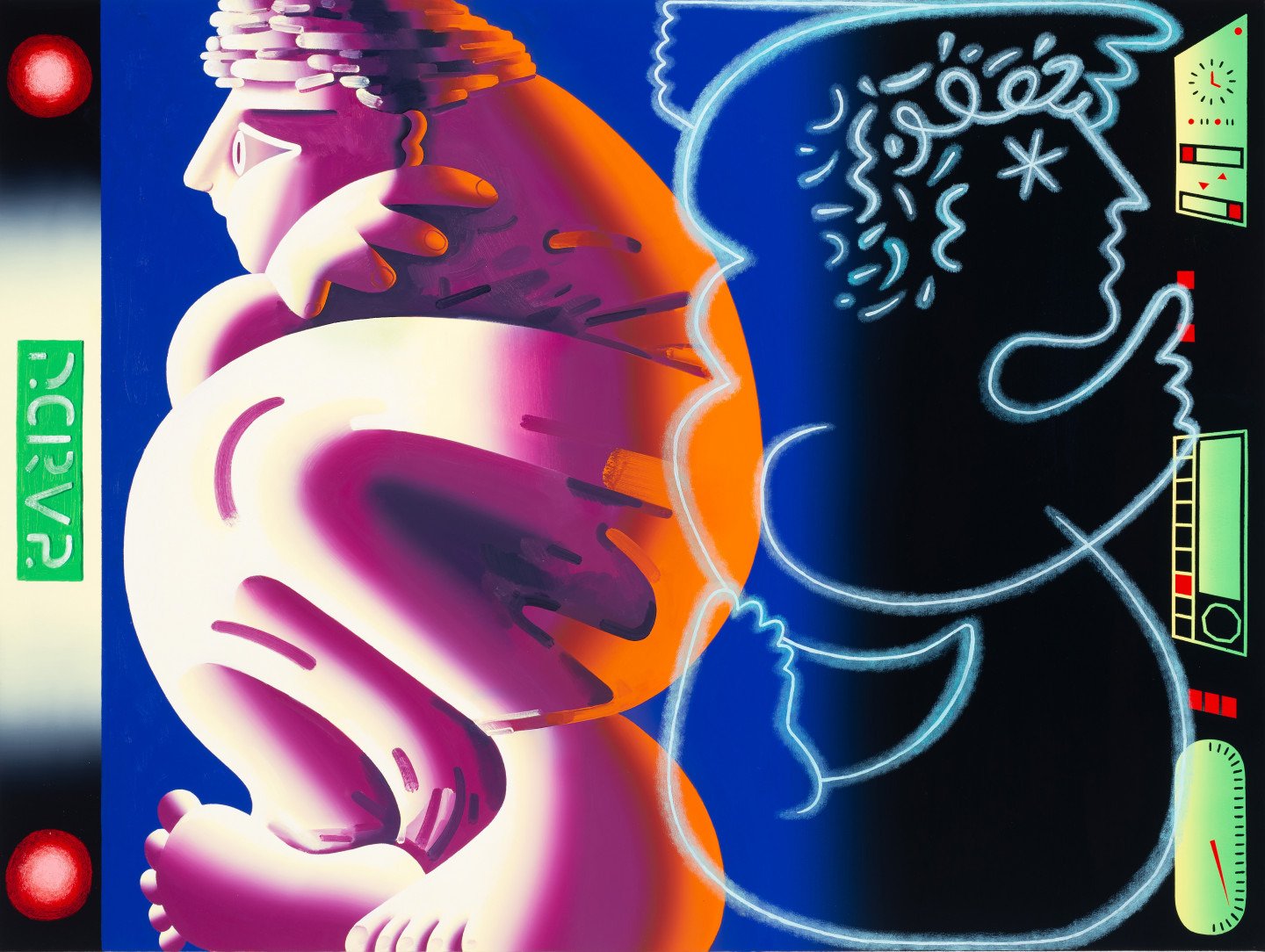In Eleanor Swordy’s painting Smart Car, a man who, in his delegation of responsibility to artificial intelligence, slinks into a state of emotional abstraction that crosses into the physical. As his car drives him a holographic second figure fiddles with the dashboard, further diminishing the passenger’s essential humanness as he resigns himself to complete passivity. Staring out the back of the car from a fetal-like position, free to allow his mind to wander and dull as technology erodes his agency, the man’s bodily autonomy slips away from him as well. He longs, perhaps, for the nostalgic time when self-driving cars were a novelty reserved for the technologically adventurous or even science fiction. The position of the passenger’s body refers to Philip Guston’s Sleeping, 1977, mirroring his presumed emotional state, as limbs and extremities collapse into one another, losing any sense of specificity or responsibility to the body as a whole. This two-pronged approach to abstraction belies an understanding of the human figure as fundamentally malleable both physically and psychologically; Swordy’s figures come to embody their inner states physically through constant contortions in service of the picture’s compositional mandate. Encouraging a reading of her figures as structural load-bearers as opposed to inhabitants, Swordy argues for totality of both figure and image. Even as the figure becomes abstract, contorting in acceptance of its newfound impotence, it remains integral to the compositional whole – a silver lining for a subject whose earthly usefulness has passed him by.

Smart Car
2020
oil on canvas, signed verso
36 × 48 in (91.44 × 121.92 cm)